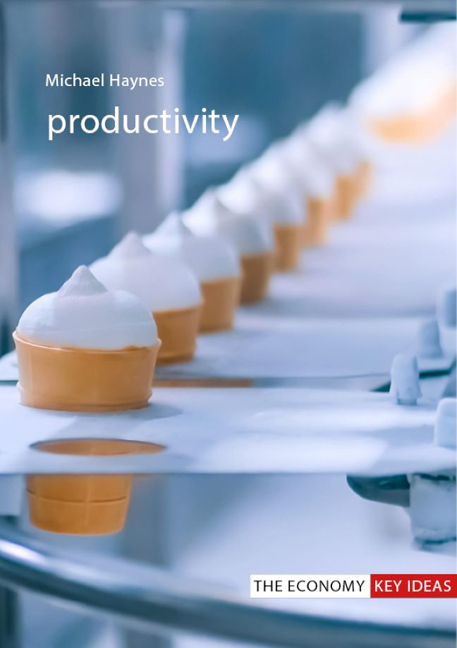Book contents
- Frontmatter
- Contents
- Preface
- 1 Productivity: “it is almost everything”
- 2 How does productivity happen?
- 3 Mysterious figures
- 4 Can productivity growth go on forever?
- 5 It’s tough at the top
- 6 Miracle productivity growth in the Asian Tigers?
- 7 Coming last? Low productivity in Africa
- 8 Productivity in a different world
- Bibliography
- Index
4 - Can productivity growth go on forever?
Published online by Cambridge University Press: 20 December 2023
- Frontmatter
- Contents
- Preface
- 1 Productivity: “it is almost everything”
- 2 How does productivity happen?
- 3 Mysterious figures
- 4 Can productivity growth go on forever?
- 5 It’s tough at the top
- 6 Miracle productivity growth in the Asian Tigers?
- 7 Coming last? Low productivity in Africa
- 8 Productivity in a different world
- Bibliography
- Index
Summary
Many of our news stories seem to be about global warming, pollution, species loss and protests about the threat of global extinction. These stories arise from a fear that the system that has given us productivity growth is out of control. There are also stories about continuing productivity problems in different economies, not least the UK. These stories assume that we have to find a way to get even more productivity growth. This chapter is about this contradiction and the question of whether productivity growth can go on forever. In the first part we ask can the planet support unlimited productivity growth? This question necessarily challenges the narrow view that many economists hold of the economic system. In the second part we accept, for the sake of argument, this narrower view but ask to what extent is productivity growth in advanced capitalism already slowing down and could we reverse it if we wanted to?
Productivity and planetary possibilities
The economist Kenneth Boulding is supposed to have said, “anyone who believes exponential growth can go on forever in a finite world is either a madman or an economist”. The normal laws of physics are not suspended in economics, but when conventional economists look to the future they tend to ignore these laws. They have the implicit, sometimes explicit, view that the economy is some kind of perpetual motion machine that can go on getting bigger forever.
Some people think about this problem in terms of population. We know that the magic of productivity growth has enabled the world's population to grow. But the problem is not really the number of people. In fact, the rate of the world's population growth has been slowing since the early 1960s. Absolute numbers are still rising, so in the next decades the world's population will peak, perhaps at around 10 billion. Numbers will then start to fall. Birth rates have been falling sharply for a long time and, in some places, they are already below replacement levels (Dorling 2013).
The problem is that we all want the same high standard of living and to maintain it. Table 4.1 shows estimates of the numbers of people who have ever lived and the share of all the output they have produced and consumed during the time they were and are alive.
- Type
- Chapter
- Information
- Productivity , pp. 69 - 90Publisher: Agenda PublishingPrint publication year: 2020

